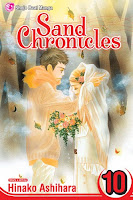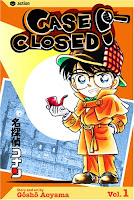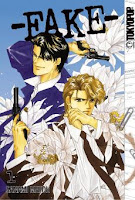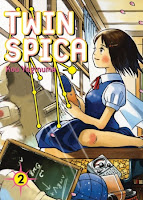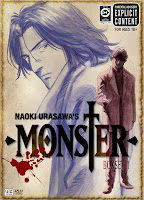 Creator: Hinako Ashihara
Creator: Hinako Ashihara
U.S. publisher: Viz Media
ISBN: 9781421514772
Released: January 2008
Original release: 2003
Awards: Shogakukan Manga Award
Sand Chronicles, Volume 1 by Hinako Ashihara was originally published in Japan in 2003. The English-language edition of the manga was initially published by Viz Media’s Shojo Beat magazine (issues twenty-six through twenty-nine) before being released as a collected volume in 2008. When September 2012’s Manga Moveable Feast focusing on Shojo Beat manga was announced, I immediately thought of the Shogakukan Manga Award-winning Sand Chronicles. One of the best contemporary shoujo series that I have ever read, Sand Chronicles is also one of my favorite shoujo manga period. The series is complete in ten volumes, although the main story finishes with the eighth. The final two volumes consist of epilogue-like side stories. While not absolutely critical for a satisfying conclusion, the “extra” stories round out the series and the characters nicely.
Twenty-six years old and about to be married, Ann Uekusa is preparing to move to America with her soon-to-be husband when memories from her adolescence come crashing back. After her parents divorced when she was twelve, Ann and her mother moved from Tokyo to the rural village of Shimane. Living with her grandparents in a small town where everyone knows everyone else’s business will take some getting used to, but Ann quickly makes friends with the other kids her age. After a rough beginning, she hits it off particularly well with Daigo Kitamura and even manages to befriend the more reserved Fuji Tsukishima and his younger sister Shika. Those friendships become even more important to Ann when tragedy strikes her family. The events that occur during the winter of Ann’s twelfth year will have profound effects on her for the rest of her life.
I am quite fond of Ashihara’s artwork in Sand Chronicles and find it to be very effective. There are two things she does particularly well in the manga. Her backgrounds, settings, and natural landscapes are beautiful and detailed, giving Shimane and the surrounding area a real sense of place. Ashihara captures the changes of seasons well, too, easily shifting from the snowy mountainsides in the winter to the summer storms in the woods. But perhaps most importantly, Ashihara’s art style allows her characters to be incredibly expressive. They show sadness and pain as well as laughter and joy. A glance or simple gaze can carry a significant amount of meaning even when the characters aren’t able to verbally express their feelings. This is particularly important in a series like Sand Chronicles in which the characters’ personal emotions and inner turmoil are just as important as their outward actions. Ashihara is able to convey and capture both the inner and outer aspects of the story and her characters through her artwork.
The overall tone I get from the first volume of Sand Chronicles is one of melancholy but not of overwhelming sadness. Sand Chronicles is a series that tugs at the heartstrings but at the same time I didn’t feel emotionally manipulated by it. This is one of the reasons that Sand Chronicles works so well for me. Some of the more climactic moments tend be a little melodramatic, but the emotions and feelings being expressed are honest and real. The characters, too, are well-developed and multi-faceted, even contradictory to some extent, lending to their authenticity and realism. They all have personal histories that explain their individual quirks and behaviors; they are who they are for a reason. Ann may exhibit strength, but she also shows signs of fragility, something that is true for many of the characters in Sand Chronicles. Their pasts inform their presents which in turn influence their futures, a theme that recurs throughout the volume and the series—something that Ashihara never forgets.



